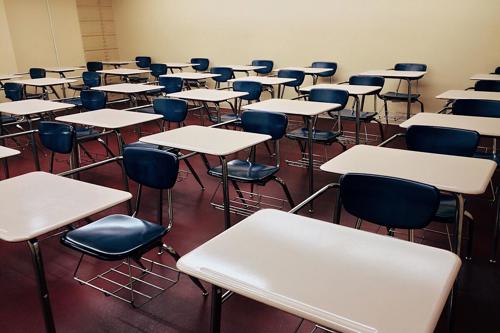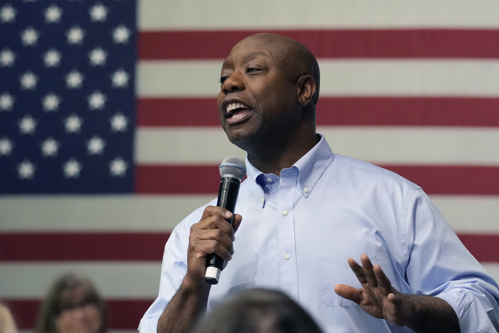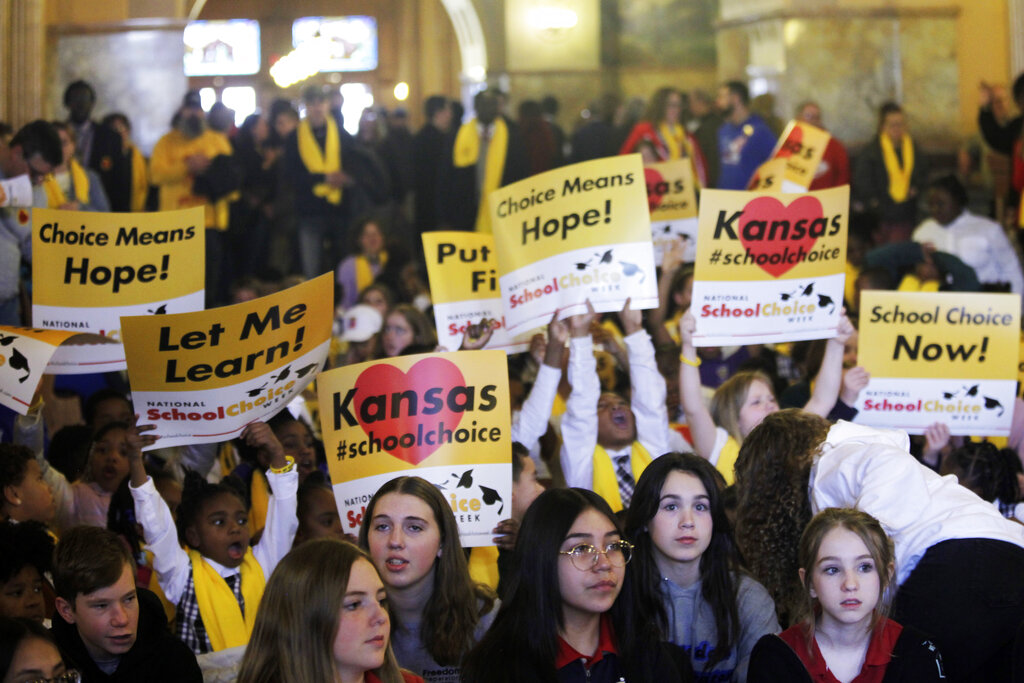The bill, called the Educational Choice for Children Act, was introduced last year by Senators Bill Cassidy (R-LA) and Tim Scott (R-SC). The bill has 16 co-sponsors in the GOP-led Senate.
If approved by Congress and signed by President Trump, it would give charitable tax credits – up to $5,000 annually – to people who contribute to student scholarships for low-income families.
The bill was first introduced last fall in Congress, where it was celebrated by school-choice advocates for becoming the first school-choice bill to hit the House floor for debate.
 Democrats in Congress are deeply tied to the powerful teachers' unions, which vehemently oppose the school-choice movement, private schools, and homeschooling.
Democrats in Congress are deeply tied to the powerful teachers' unions, which vehemently oppose the school-choice movement, private schools, and homeschooling.
Rep. Adrian Smith (R-NE) and Rep. Burgess Owens (R-UT) introduced the bill last year in the House of Representatives.
Now, one year and four months later, President Trump this week signed an executive order stating school choice will be a priority for the U.S. Dept. of Education during his term.
Also this week came a report from the National Assessment Governing Board and its “National Report Card” for public schools. It said American 4th grade and 8th grade public school students are showing “continued declines” in reading.
Math scores improved in some states, it said, but not a single U.S. state showed improvement from reading scores dating back to 2022. About one-third of 8th graders nationwide are failing to hit even basic scores in reading.
Scott: Act gives families ‘resources and freedom’
With a promise to help lower-income students, the school scholarships would go to students whose household income is no greater than 300% of the median household income in their community.
In Jackson, Mississippi, for example, the median household income in the majority-black city is $42,193. So the scholarship would be capped at households with an annual income of $126,579.
The most recent scores for Jackson Public Schools shows 29.5% of students are proficient in math and 29% are proficient in English.
 The senators claim approximately 2 million children are eligible for an education scholarship.
The senators claim approximately 2 million children are eligible for an education scholarship.
"By empowering families with more education resources and freedom,” Sen. Scott (pictured at right) said in a statement, “this bill will unlock opportunities that have been out of reach for students across America who deserve every chance to succeed and a schooling system that fosters their potential."
School-choice advocate Corey DeAngelis predictably supports the legislation. He tells AFN the bill’s tax credit plan means federal tax dollars are not being spent on a student who uses the scholarship to choose a new school.

"This would not be federal money following the student," DeAngelis says. “You could abolish the Department of Education and still have the act passed. It's neither run nor regulated by the federal Department of Education."
The bill, as written, would utilize the U.S. Department of Treasury since the legislation involves tax credits.
DeAngelis watched the Educational Choice bill pass out of the House Ways and Means Committee last fall. He celebrated its passage in an X post and pointed out history was being made for the school-choice movement.







